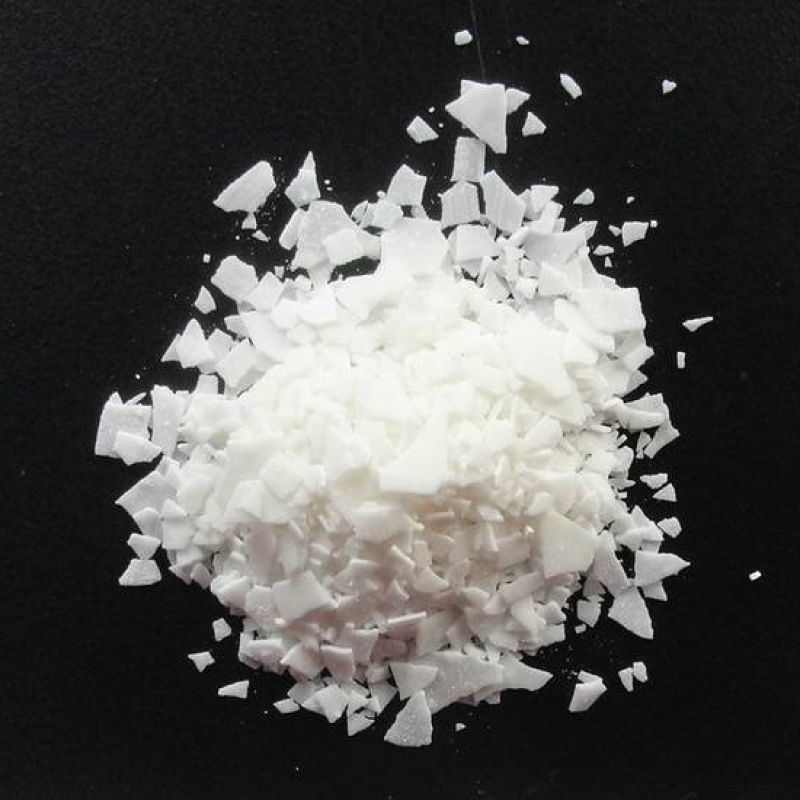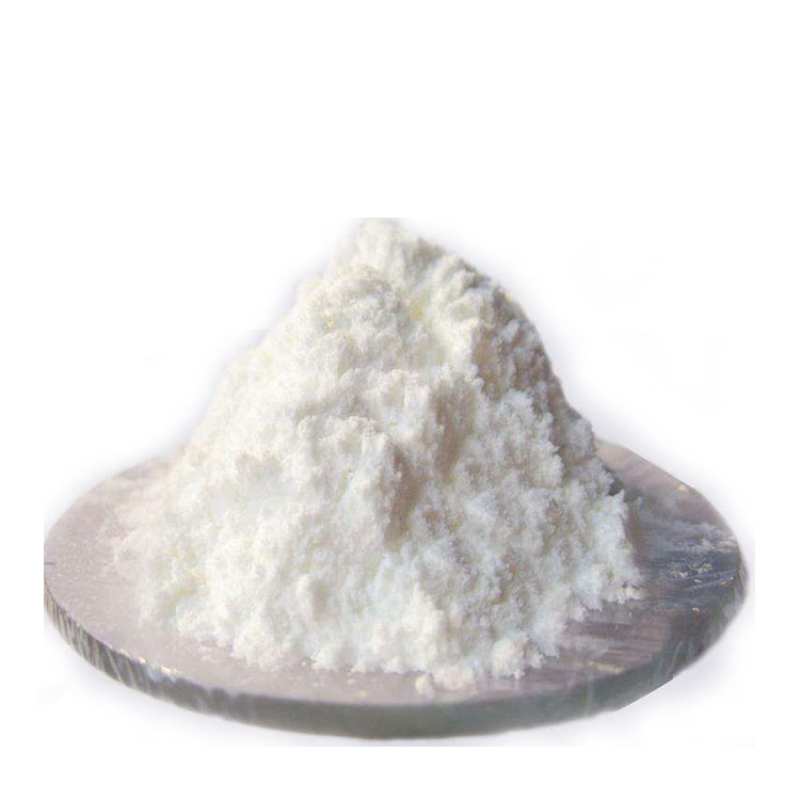Products Description of 4-Hydroxy-2-butanone CAS#590-90-94-Hydroxy-2-butanone is a component of bark beetle powder used to lure and kill bark beetles. It forms a complex with a Ziegler-Natta catalyst and is used as a catalyst for the stereospecific polymerization of butadiene and an organic synthesis intermediate.
Contate agora
Products Description of (-)-(R)-Mandelic Acid CAS#611-71-2D-mandelic acid is a polar molecule. Because it contains hydroxyl and carboxyl groups, the molecule has a certain degree of hydrophilicity. Since D-mandelic acid is a chiral molecule, its physical and chemical properties are affected by the stereostructure of its molecule. In addition, the acid-base properties of D-mandelic acid are also affected by the molecular structure.
Contate agora
Products Description of (R)-(-)-2-Methylpiperazine CAS#75336-86-6 White to light yellow crystalline solid.
Contate agora
Products Description of 2-Hydroxy-3-trifluoromethylpyridineCAS#22245-83-62-Hydroxy-3-trifluoromethylpyridine, as a pyridine derivative, plays an important intermediate role in the chemical industry, medical and pesticide fields, etc.2-Hydroxy-3-trifluoromethylpyridine Chemical PropertiesMelting point 150-153°CBoiling point 223.7±40.0 °C(Predicted)density 1.398±0.06 g/cm3(Predicted)storage temp. Inert atmosphere,Room Temperatureform powder to crystalpka9.67±0.10(Predicted)color White to Almost whiteInChIInChI=1S/C6H4F3NO/c7-6(8,9)4-2-1-3-10-5(4)11/h1-3H,(H,10,
Contate agora
Products Description of 2-HYDROXY-3-METHYLPYRIDINE CAS#91914-04-4White powder2-HYDROXY-3-METHYLPYRIDINE Chemical PropertiesBoiling point 292.1±20.0 °C(Predicted)density 1.120±0.06 g/cm3(Predicted)storage temp. under inert gas (nitrogen or Argon) at 2-8°Cpka10.37±0.10(Predicted)CAS DataBase Reference91914-04-4(CAS DataBase Reference)Factory and Equipment ShowFast transport timeInventory 2-3 working days New manufacturing 7-10 working days
Contate agora
Products Description of 2-Hydroxy-4-methylpyrimidine hydrochloride CAS#5348-51-62-Hydroxy-4-methylpyrimidine hydrochloride CAS No.
Contate agora
Products Description of AMBERLITE(R) IRA-400 (CL) CAS#9002-24-8717 Strong Base Anion Exchange Resin is a chemical substance.AMBERLITE(R) IRA-400 (CL) Chemical PropertiesWater Solubility Insoluble in water.Merck 14,382Safety InformationRisk Statements 36/37/38Safety Statements 26-36WGK Germany 3TSCA YesProduct Application of AMBERLITE(R) IRA-400 (CL) CAS#9002-24-8Used for softening water, preparing high-purity water, refining radioactive elements, extracting iodine from seaweed, refining antibiotics, industrial wastewater treatment, etc.Factory and Equipm
Contate agora
Products Description of (R)-(-)-3-Carbamoymethyl-5-methylhexanoic acid CAS#181289-33-8(R)-(-)-3-(Carbamoylmethyl)-5-methylhexanoic acid is solid at room temperature and pressure, soluble in dimethyl sulfoxide, N,N-dimethylformamide and other organic solvents; it has poor solubility in ether solvents and can be used as an intermediate in chiral organic synthesis.
Contate agora
Products Description of ORALITH BRILLIANT PINK R CAS#2379-74-0Reduction of pink red R to thioindigo dyes is mainly achieved by oxidizing unsubstituted or substituted benzo[b]thiophene-3 or naphtho[2,3-b]thiophene using various oxidants such as bromine in a chlorosulfonic acid medium, polysulfides, oxygen in the presence of copper salts, etc.ORALITH BRILLIANT PINK R Chemical PropertiesBoiling point 529.1±50.0 °C(Predicted)density 1.583±0.06 g/cm3(Predicted)storage temp. Sealed in dry,Room Temperatureform SolidColour Index 73360color RedLogP2.06 at 22℃ and pH7E
Contate agora
Products Description of AMBERLITE(R) XAD-4 CAS#37380-42-0Ion exchange resin is a kind of functional polymer that can exchange with ions of the same sign in aqueous solution. It is essentially a cross-linked polymer acid or polymer base. Phenolic cation exchange resin was first introduced in 1935, and industrial production began in Germany in 1939 and the United States in 1941. After World War II, polystyrene and polyacrylic acid ion exchange resins were put into production one after another. After the 1960s, macroporous ion exchange resins were developed.
Contate agora
Products Description of CREMOPHOR (R) A25 CAS#68439-49-6CETETH25 is a nonionic emulsifier obtained by adding natural saturated fatty alcohol and ethylene oxide. CETETH25 (HLB15-17) is an oil-in-water (O/W) emulsifier. When used together with CETETH6, it forms a pair of complementary emulsifiers. The emulsifier pair has a small amount of use and a strong emulsification ability. The prepared emulsion products have high stability and bright appearance. It can tolerate a certain degree of inorganic salts and extreme pH conditions.
Contate agora
Zirconium, chloro glycine hydroxy aluminum complexes CAS#90604-80-1Factory and Equipment ShowFast delivery timeInventory 2-3 working days New production 7-10 working days
Contate agora
Products Description of 3-Hydroxy-1-AdaMantane Carboxylic Acid CAS#42711-75-13-Hydroxyadamantane can be used to synthesize potent pyridineamide/sulfonamide inhibitors of 11β-HSD-1, which can be used to treat ulcers or hormone therapy related to cortisol3-Hydroxy-1-AdaMantane Carboxylic Acid Chemical PropertiesMelting point 203 °CBoiling point 357.2±25.0 °C(Predicted)density 1.419±0.06 g/cm3(Predicted)storage temp. Sealed in dry,Room Temperaturesolubility DMSO (Slightly), Methanol (Slightly)form Solidpka4.60±0.40(Predicted)color Off-WhiteInChIInChI=1S/C11
Contate agora
Products Description of Dinonylnaphthalenesulfonic acid CAS#25322-17-2Dinonylnaphthalenesulfonic acid is a chemical substance with the molecular formula C28H44O3S.Dinonylnaphthalenesulfonic acid Chemical PropertiesBoiling point 94-99 °Cdensity 0.852 g/mL at 25 °Crefractive index n20/D 1.465Fp 30 °Fstorage temp. 2-8°Csolubility H2O: insolubleCAS DataBase Reference25322-17-2(CAS DataBase Reference)EPA Substance Registry SystemNaphthalenesulfonic acid, dinonyl- (25322-17-2)Safety InformationHazard Codes F,Xn,NRisk Statements&nb
Contate agora
Products Description of Methanedisulphonic acidCAS#503-40-2Methyl disulfonic acid is an important fine chemical product.
Contate agora
Products Description of 2-Hydroxynicotinic acid CAS#609-71-22-Hydroxynicotinic acid is an organic intermediate.
Contate agora
Products Description of 2-chlorobenzoic acid CAS#118-91-22-Chlorobenzoic acid, almost white coarse powder. The melting point is 142℃, and the density (20℃) is 1.5449/m3.
Contate agora
Products Description of 2-Thiophenecarboxylic acid CAS#527-72-02-Thiophenecarboxylic acid is a kind of colorless crystal.
Contate agora
Products Description of 2-Acrylamide-2-methylpropanesulfonic acid CAS#15214-89-82-Acrylamido-2-methylpropanesulfonic acid (AMPS) is a water-soluble sulfonic acid group with strong anionic properties, which makes it salt-resistant, high-temperature-resistant, dye-affinity, conductive, ion-exchangeable and highly tolerant to divalent cations; the amide group makes it have good hydrolysis stability, acid and alkali resistance and thermal stability; and the active double bond makes it have addition polymerization properties, and it can produce copolymers with a variety of hydrocarbon monomers
Contate agora
Products Description of 2,7-naphalenedisulfonic acid CAS#1655-35-2 Sodium 2,7-naphthalene disulfonate, white powder, is mainly used in organic synthesis and dye industry.2,7-Naphthalenedisulfonic acid disodium salt Chemical Propertiesform powder to crystalcolor White to Light yellow to Light orangeCAS DataBase Reference1655-35-2(CAS DataBase Reference)EPA Substance Registry System2,7-Naphthalenedisulfonic acid, disodium salt (1655-35-2)Safety InformationHazard Codes XiRisk Statements 36/37/38Safety Statements 37/39-26Hazard Note IrritantHS Code 2904
Contate agora
Products Description of 2-Ethoxybenzoic acid CAS#134-11-2Colorless oily liquid. Melting point 20.7℃, boiling point 174-176℃ (2.0kPa), relative density 1.105, refractive index 1.5400.
Contate agora
Products Description of 4-(2-Tetrahydropyranyloxy)phenylboronic acid CAS#182281-01-2Phenylboric acid is a chemical substance with the chemical formula C11H15BO4.4-(2-Tetrahydropyranyloxy)phenylboronic acid Chemical PropertiesMelting point 117-124 °CBoiling point 411.3±55.0 °C(Predicted)density 1.21±0.1 g/cm3(Predicted)storage temp. Keep in dark place,Sealed in dry,Room Temperaturesolubility soluble in Methanolform powder to crystalpka8.63±0.16(Predicted)color White to Light yellowCAS DataBase Reference182281-01-2(CAS DataBase Reference)Safety Information
Contate agora
Products Description of 2-Phosphonobutane-1,2,4-tricarboxylic acid CAS#37971-36-12-Phosphonobutane-1,2,4-tricarboxylic acid (PBTC) is the latest generation of internationally popular phosphonic acid. It is one of the most widely used and best-performing products in the compounding of high-efficiency scale and corrosion inhibitors. This product is particularly suitable for water conditions with high temperature, high hardness, high alkalinity, high pH, and high concentration ratio.
Contate agora
Polymaleic Acid CAS#26099-09-2 Polymaleic acid is the homopolymer of maleic acid. It is very secure in presence of chlorine and different oxidizing biocides. It has correct scale inhibition and excessive temperature resistance properties. Therefore, it can be used in the water desalination plants. It is also an amazing calcium carbonate antiscalant upon excessive temperature and in the excessive alkaline cooling water systems.
Contate agora



































